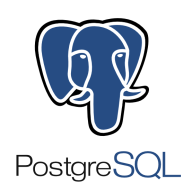

PostgreSQL and Microsoft Azure Cosmos DB are significant contenders in the database management sector. Cosmos DB excels in scalability and global distribution, making it preferable for enterprises requiring rapid data access worldwide. Meanwhile, PostgreSQL’s extensive feature set and cost-effectiveness make it highly attractive for organizations prioritizing robust functionality and budget efficiency.
Features: PostgreSQL is valued for its SQL standard compliance, flexibility in data handling with key-value stores and arrays, and its ability to connect various data sources using foreign data wrappers. It is considered reliable, offering disaster recovery solutions and features like streaming replication and JSON support. Microsoft Azure Cosmos DB highlights its scalability and support for multiple data models, along with seamless integration with Microsoft products. It facilitates real-time data access and offers global distribution capabilities.
Room for Improvement: PostgreSQL users suggest enhancements in multi-master replication, partitioning options, and monitoring tools. There is also a demand for more user-friendly interfaces and better JSON manipulation support. For Microsoft Azure Cosmos DB, users express concerns about cost and integration complexities, alongside the need for improved analytics and simplified cross-partition queries. Simplified pricing models and better API documentation are also desired.
Ease of Deployment and Customer Service: PostgreSQL benefits from a strong online community, providing significant support and resources, although lacking formal customer service. Its open-source nature results in varied deployment experiences depending on user expertise. Microsoft Azure Cosmos DB, supported by Microsoft’s cloud services, offers easy deployment in the public cloud with professional support, suiting Azure ecosystem users.
Pricing and ROI: PostgreSQL offers outstanding value as open-source software, where most costs are infrastructure and expertise-related, rather than licensing, ensuring a rapid ROI. Conversely, Microsoft Azure Cosmos DB, with a pay-as-you-go model, is perceived as costly for specific workloads due to complex request unit pricing. However, its flexibility and seamless scalability justify the expense for enterprises utilizing its capabilities extensively.


Microsoft Azure Cosmos DB is a globally distributed, multi-model database service providing scalability, user-friendliness, and seamless integration, suitable for managing large volumes of structured and unstructured data across diverse applications.
Azure Cosmos DB is renowned for its scalability, stability, and ease of integration, offering robust support for multiple data models and APIs. Its capacity for handling unstructured data efficiently and providing real-time analytics makes it ideal for applications requiring high performance and global distribution. With features like automatic failover and integration with Microsoft products, users benefit from cost optimization and secure data handling. Enhancement opportunities include simplifying queries, improving documentation, and expanding backup and analytics functionalities.
What are the most important features of Microsoft Azure Cosmos DB?Azure Cosmos DB is frequently used in sectors like web, mobile, IoT, and analytics. It supports applications as a key-value store, processes real-time data, and enables global scalability with low-latency access. Its big data management capabilities and integration with Azure services enhance its utility across industries.
PostgreSQL is a versatile and reliable database management system commonly used for web development, data analysis, and building scalable databases.
It offers advanced features like indexing, replication, and transaction management. Users appreciate its flexibility, performance, and ability to handle large amounts of data efficiently. Its robustness, scalability, and support for complex queries make it highly valuable.
Additionally, PostgreSQL's extensibility, flexibility, community support, and frequent updates contribute to its ongoing improvement and stability.
We monitor all Vector Databases reviews to prevent fraudulent reviews and keep review quality high. We do not post reviews by company employees or direct competitors. We validate each review for authenticity via cross-reference with LinkedIn, and personal follow-up with the reviewer when necessary.